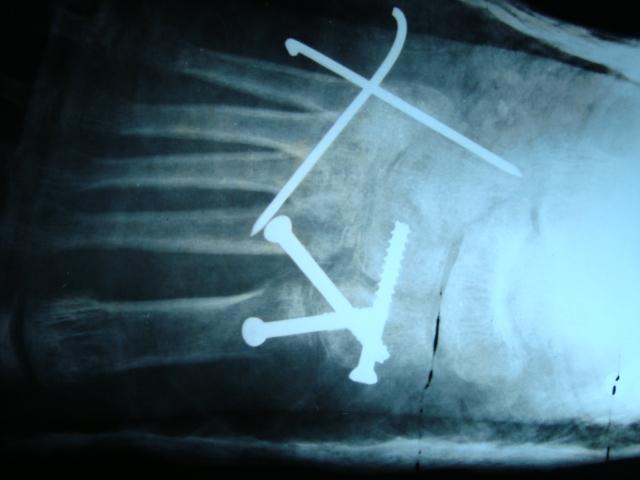Editorial
New Orthopaedic Residents and Research: How do we Approach
Journal of Orthopaedic Case Reports | Volume 7 | Issue 2 | March – April 2017 | Page 1-2| Shyam A. DOI: 10.13107/jocr.2250-0685.720
Authors: Shyam A[1, 2]
[1] Indian Orthopaedic Research Group, Thane, India.
[2] Department of Orthopaedic, Sancheti Institute for Orthopaedics and Rehabilitation, Pune, Maharashtra, India.
Address of Correspondence
Dr. Ashok Shyam,
Department of Orthopaedic, Sancheti Institute for Orthopaedics and Rehabilitation,
Pune, Maharashtra, India.
E-mail: drashokshyam@gmail.com
New Orthopaedic Residents and Research: How do we Approach
This editorial is largely derived from my personal experience at my Institute, “Sancheti Institute for Orthopaedics and Rehabilitation.” I have been a consultant Surgeon and Head of Academic Research for nearly a decade now and have seen numerous orthopedic residents go through their training over the years. At any given point of time, we have nearly 35 orthopedic residents at our institute, which is a huge number in itself. All these students come from different medical colleges and from different background but one thing is common in them, they all have very limited knowledge and concept about research. I think it will be safe to assume that the situation is same at most of the other institutes and colleges. Research is one of the most neglected topics in our undergraduate curriculum, to the extent that nearly 90% of students have not even seen a journal or read a journal article in their undergraduate. This raises a lot of questions about the medical education system, but probably that is an issue better tackled in another editorial. So the issue is of getting residents that have no real clue about research and get them ready to do a quality thesis. This is especially difficult when the entire focus of these students is on learning clinical and surgical skills. However, another aspect to remember in this scenario is that we cannot be very high in our expectations from these students. To begin with, we have to expose them to basic concepts of research and research methodology. This is a slow process and requires a lot of patience. One of the ways that we follow at our institute is to take a weekly update about the thesis project from the students at our daily morning meetings. This keeps a track of the projects and students also feel that everyone is supporting them. In the beginning, we have an entire half day lecture series on research, synopsis, thesis writing and review of literature for these new students. The lectures are designed to be simple and inform them about the basic concepts which will help them begin their projects. A step wise instructions on how to approach toward deciding the topic for their thesis and plan their project is also given to them. They are primed toward the basic concepts and are also given access to journal articles and research resources. Concepts like evidence based medicine and statistics are also introduced. The main focus of these lectures is to introduce the world of journals and literature. A detailed tutorial on PubMed and how to search literature is taken for the students. I believe reading article is the first step toward learning research and getting acquainted to research methodology. Templates of synopsis and clinical research form are provided to them, and they are expected to finalize their topics with the help of their guides and prepare a synopsis for submission to the university. Their synopsis is also submitted to the Institutional Ethics Committee for review and approval. The students are guided and helped at every step of synopsis writing and finalizing their protocol. In addition to submission to ethics committee and to the university the students are also expected to prepare a hypothesis manuscript to be submitted to Journal of Medical Thesis [1]. The guidelines for writing the hypothesis is made available from the journal website, and all students are made to write a manuscript based on that. This probably is the first every scientific manuscript to be written by these students and hence they need to introduced to concepts of research questions, inclusion, exclusion criteria’s, literature review, and reference citations. One more additional thing that we do is to introduce them to Mendeley software which serves well as a literature review platform and also as a reference manager. Armed with these resources they students are encouraged to submit their articles to Journal of Medical Thesis and then go through the process of peer review, correction and resubmission of the manuscript. The entire process introduces them to procedure of article writing as well as article submission and review. Journal of medical thesis is an important platform for these students and writing a hypothesis greatly helps the students to understand their own topics in great details. Finally along with above information, the students are also informed in details about academic misconduct such as plagiarism and ethical concerns about the studies [2]. They are strictly discouraged in copy and pasting from the internet resources and also though to credit the ideas with proper citations. This along with proper guidance provides a good platform for their initiation and prepares these students for their journey in research and publication. Importance of research and publication and building their academic profile is been stressed on these students from the very beginning and is reinforced regularly with weekly updates on thesis, weekly detailed thesis presentation by select students and Journal clubs.
I believe this protocol has helped a lot of our students over a period of time and many have gone ahead and published excellent papers in their academic careers. I think it is important to initiate these students early in their clinical career and an ore research inclination in undergraduate curriculum will help in building this research culture.
Regards,
Dr Ashok Shyam
Editor – JOCR
References
1. Shyam AK. Editorial: Outreach of Journal of Medical Thesis. J Med Thesis 2014;2(3):1-2.1. Shyam AK. Editorial: Outreach of Journal of Medical Thesis. J Med Thesis 2014;2(3):1-2.
2. Poduval M. Plagiarism-cut it at the roots. J Orthop Case Rep 2015;5(1):3-4.
| How to Cite This Article: Shyam A. New Orthopaedic Residents and Research: How do we Approach. Journal of Orthopaedic Case Reports 2017 Mar-Apr;7(2):1-2. |
[Full Text HTML] [Full Text PDF]
[rate_this_page]
Dear Reader, We are very excited about New Features in JOCR. Please do let us know what you think by Clicking on the Sliding “Feedback Form” button on the <<< left of the page or sending a mail to us at editor.jocr@gmail.com






